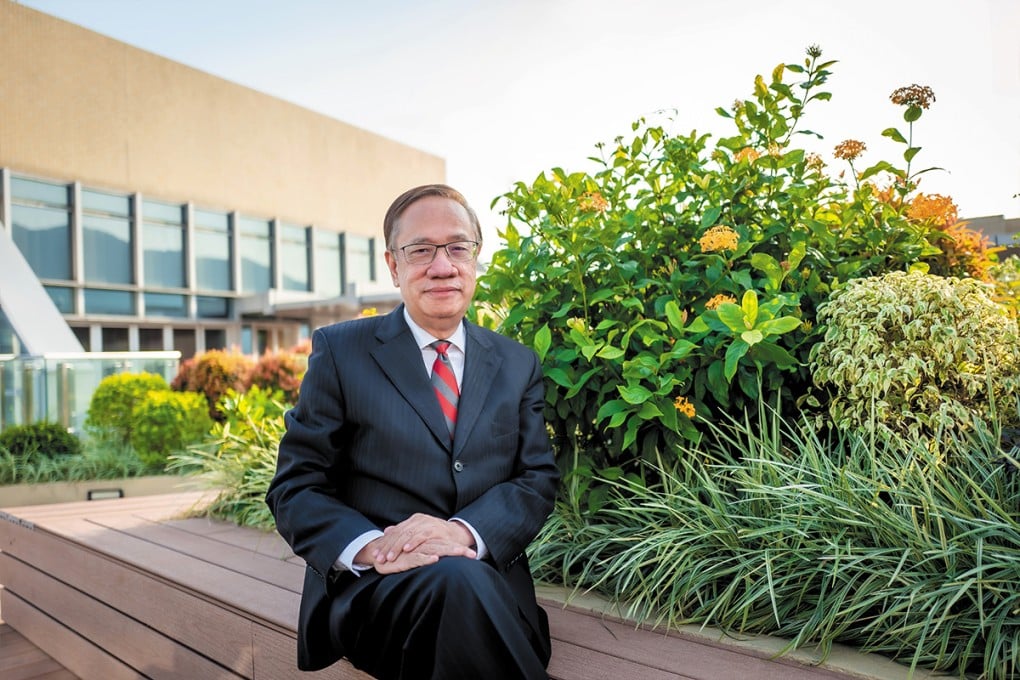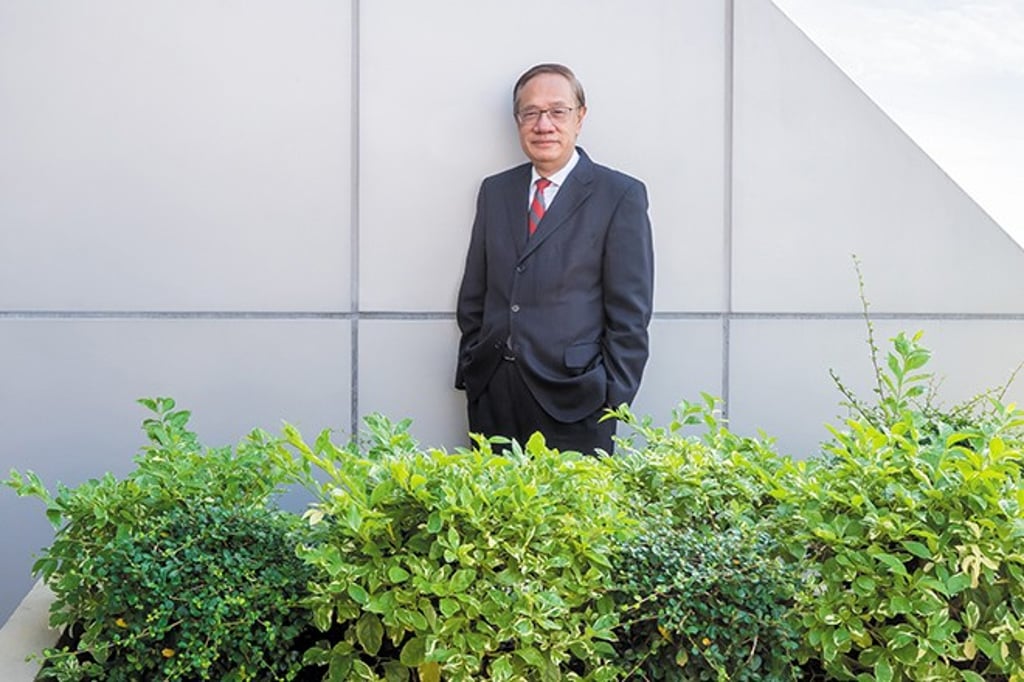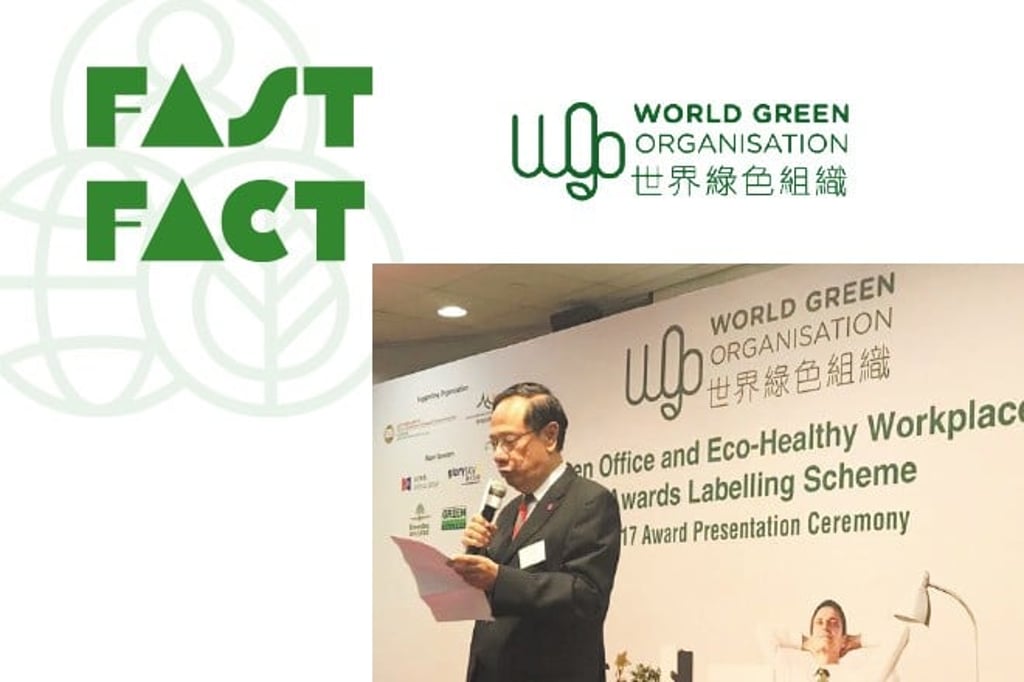Concrete Results
The property and construction sectors can help green finance gain a foothold in Hong Kong. With his extensive experience in both the finance and property sectors, Albert IP, who is the new Chairman of the World Green Organization, an Independent Non-executive Director and a Sustainability Committee Member of New World Development Company Ltd, is connecting the dots between different stakeholders for a better future.

[Sponsored Article]
For green finance to gain a firmer and wider foothold in Hong Kong, there needs to be continuous collaboration between companies, the government, banks and individuals. Such entities must work together to understand our environmental challenges, embrace IT and integrate it into their businesses.
The property and construction industry can take the lead in this area, says Albert Ip, Chairman of the non-profit World Green Organization (WGO). “This is an ongoing process which takes time to sink into the mind and become natural for companies, banks and investors,” he says.
Even though the uptake of Environmental, Social, Governance (ESG) and green finance in Hong Kong is in its early stages, the city is moving forward. Many major corporations have already taken the lead, and Ip thinks this is a good sign. “Green finance results from leadership, whether there is a top-down or bottom-up approach,” he says.
Ip says that the property and construction industries can set an example by playing a key role in driving sustainability. “Buildings are responsible for close to 90 percent of Hong Kong’s overall electricity consumption. The environmental impact of construction, in terms of waste, noise and air pollution, is material,” says Ip, who is also a Sustainability Committee Member of New World Development Company Ltd and Power Assets Holdings Ltd.
To address these concerns, many developers have started to certify new projects to local BEAM Plus or international LEED green building design standards. Such standards provide guidelines for green architecture, site selection, materials, and construction process.
Guidelines for success
These guidelines have concrete benefits. Tenants welcome such measures, so developers will be able to attract more tenants. Banks can play a part, too, by offering incentives such as lower interest rates to companies which comply with strict sustainability measures.
“Costs involved in constructing green projects may be higher, as higher standards must be imposed to combat flooding and climate change issues. Lenders should be more willing to lend to such projects as a result of lower risk,” he says.
Ip says that New World Development is an excellent example of how a property developer can lead the change to promote the transition to a low-carbon economy. The company raised its first green loan in 2018, followed by a number of green financing transactions in the city. Since then, other major corporate issuers have also raised similar transactions.
This is in line with the objectives of WGO. The organization, established in 2012, focuses on environmental conservation and environmentally related livelihood and economic affairs.
WGO is well known for establishing the largest Green Office Scheme in Hong Kong. The scheme engages more than 400 corporations to work towards improving their workplace through sustainability in energy, water, paper use reduction, as well as waste and carbon reduction.
Ip believes that these initiatives, coupled with green loans and sustainability instruments, amount to a cost saving proposition.
Savings to be made
There are savings due to ongoing energy and water conservation initiatives. Green instruments such as sustainability linked loans may offer issuers a price reduction if certain conditions are met.
Some of these conditions can include reducing energy consumption per square meter and waste to landfill litres/guest night for a hotel company, says Ip, CEO of Langham Hospitality Investments Limited (LHIL) until April 2019. LHIL raised a Sustainability Linked Loan in 2019, the first in Asia for a hotel company.
It is becoming clear that businesses are realizing the benefits of green finance and the low-carbon economy. “Green finance offers many new tools to support businesses today, including green loans, green bonds, and sustainability linked instruments. These help businesses find new avenues to raise capital, and possibly lower borrowing cost,” says Ip.
It is no surprise that businesses are becoming more interested in incorporating green financing into their corporate strategies and long-term plans for growth across the board.
Looking at official figures, cumulative green bonds issuance in Hong Kong had reached US$26 billion as of May 2020, while the cumulative green bond issuance by HK-based entities had reached US$7.1 billion as of December 2019.
Creating shared value
Research conducted by Morgan Stanley Capital International in 2020 showed that the stock prices of ESG leaders amongst corporations outperformed laggards by 16.8 percent in the first quarter of 2020.
Ip finds that the push for ESG to become a board level matter is exciting. As an Independent Non-Executive Director of New World Development, he is supportive of the company’s mission of “Creating Shared Value”, a call for stakeholder capitalism originated from a 2011 Harvard Business Review article by Michael Porter and Mark Kramer.
Ip stresses the importance to stay competitive and resilient by addressing different stakeholders’ needs and thinking long-term. ESG indicators quantify companies’ non-financial performance and their effectiveness of delivering on companies’ vision, mission and value, in addition to pure profitability. Creating shared value enhances sustainability in societal value.
Companies that integrate ESG into their strategy and operations are able to address social and environmental issues with their assets and operations. Ip encourages more boards to consider ESG integration as a core business strategy.
A new attitude
“The new generation cares more about income equality, environment and climate change,” he says. “The younger generation’s attitude towards wealth will change, and they will expect a more supportive approach for environmentally friendly investment portfolios.”
Ip feels that regardless of outcomes, businesses must take ownership of the situation and contribute more to fighting climate change. They should also take bold steps to support the global transition to a low carbon economy. “All sectors and stakeholders must work as partners to preserve our future,” he says.
The Hong Kong government needs to do more to create an investor environment that is favourable to such goals, and should provide incentives to the private sector to make changes. One good example is the offer of different levels in gross floor area concessions for green and amenity features in domestic and non-domestic developments if they fulfil certain pre-requisites, Ip says.
To institute these changes, it is necessary to have an engaged community which wants to build a sustainable lifestyle habit.
WGO helps by collaborating with various organizations to increase awareness, and by working with different stakeholders, such as the Coca-Cola Foundation, to engage the public in large-scale programs like plastic bottle recycling and public education.
As a Council Member of HKUST and an Advisory Council Board Member of its School of Business and Management, Ip has been playing a key advisory role in higher education development. To facilitate any behavioral change and nurture new talent for green finance, Ip says that our society requires a long-horizon timeframe to see the changes supported by a myriad of behavioral interventions and a young generation armed with interdisciplinary knowledge. Education is the bedrock of any sustainable society and a better future, he adds.


Green Office Awards Labelling Scheme (GOALS)
Established in 2013, the scheme helps offices and retailers to go green in eight stipulated areas of their operations. Offices have to demonstrate that they have made sufficient achievements in greening their workplace practices. If they are able to do so, they are awarded with the WGO’s Green Office Awards Level, Eco-Healthy Workplace label, and a certificate with the United Nations PRME logo.
WGO UN Climate Finance and Sustainable Investing Conference (UNESCAP)
The conference, organized by the WGO in collaboration with the United Nations Economic and Social Commission for Asia and the Pacific, brings together policymakers, private businesses, those in the financial sector, international organisations, and other relevant stakeholders, to discuss pressing issues concerning the promotion of climate-resilient investment to support Sustainable Development Goals (SDGs) and scale the Asia’s green capital market.